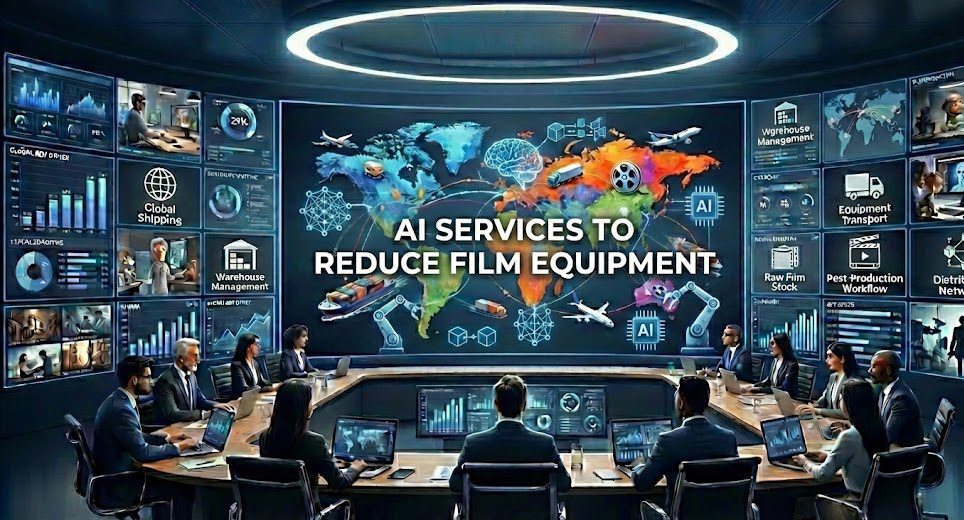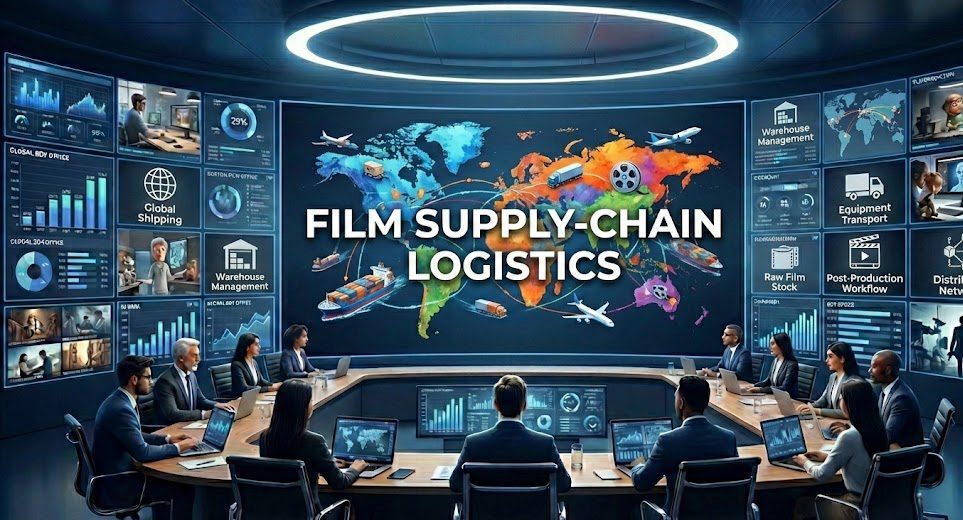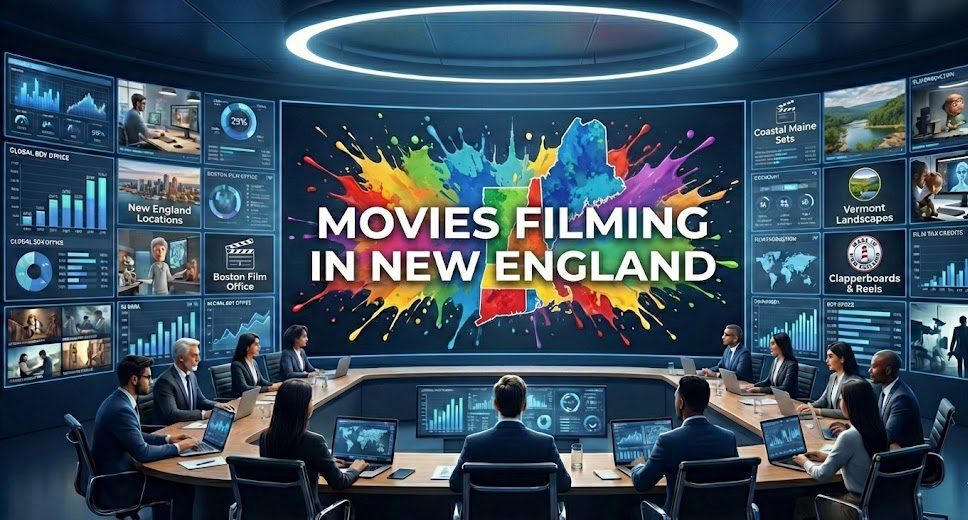Introduction
So, your film is made, or perhaps it’s nearing completion. Now, how do you turn that cinematic vision into a commercial success? The answer lies in a robust film sales strategy. This isn’t just about hoping someone stumbles upon your masterpiece; it’s a deliberate plan to navigate the marketplace, engage potential buyers, and ultimately, get the best possible deals for your movie.
Whether you’re a producer, a sales agent, or a filmmaker wearing multiple hats, understanding how to create an effective movie sales plan is crucial. This guide will walk you through the key elements, from understanding your film’s value to deciding between a film sales agent vs direct sales, and even touching on concepts like pre-sales film deals. Let’s get strategic about selling your film!
Table of content
- Introduction
- Key-Takeaways
- What is a Film Sales Strategy and Why Do You Need One?
- Key Components of a Winning Movie Sales Plan
- Strategies for Attracting Film Buyers and Making an Impact
- The Role of a Film Sales Agent vs. Direct Sales Approaches
- Pre-Sales and Early Market Engagement Strategies
- Conclusion
- FAQs
Key Takeaways
| Strategic Element | Core Importance |
|---|---|
| Film Valuation | Realistically assessing your film’s market potential and target audience to set appropriate sales goals. |
| Target Buyer Identification | Researching and identifying distributors and platforms whose acquisition needs align with your film. |
| Compelling Sales Materials | Creating professional and persuasive materials (trailer, poster, EPK) to attract and inform buyers. |
| Market & Festival Plan | Strategically using film markets and festivals to launch, network, and generate sales opportunities. This is key for any film market strategy. |
| Sales Agent vs. Direct Sales | Understanding the pros and cons of working with a sales agent versus pursuing direct deals with distributors. |
Struggling to Attract Film Buyers for Your Project?

What is a Film Sales Strategy and Why Do You Need One?

A film sales strategy is your comprehensive game plan for selling the exhibition rights to your film. It outlines who your target buyers are, what makes your film valuable to them, how you plan to reach them, and what kind of deals you’re aiming for. In an industry overflowing with content, a clear strategy isn’t just helpful – it’s essential. Without one, you’re essentially navigating a vast ocean without a map or compass, hoping to bump into land. A strong film sales strategy guides your efforts, focuses your resources, and significantly increases your chances of successfully monetizing your film and reaching your desired audience. It is the blueprint for how you will approach international film sales and domestic opportunities alike.
Defining the goals of your film sales strategy.
Before diving into tactics, define what success looks like for your film. Your goals might include:
- Maximizing Revenue: Achieving the highest possible sales figures across all available territories and platforms.
- Broad Audience Reach: Getting your film seen by as many people as possible, even if it means less lucrative deals in some areas.
- Securing a Prestigious Release: Prioritizing a deal with a well-known distributor or platform, even if the financial terms aren’t the absolute highest.
- Launching a Filmmaker’s Career: Using the film’s sales and distribution as a stepping stone for future projects.
- recouping Investment: Ensuring that investors see a return on their financial commitment.
- Targeting Specific Markets: Focusing on particular countries or demographics where your film is likely to resonate most.
Your specific goals will shape every other aspect of your film sales strategy. For instance, if maximizing revenue from international film sales is a priority, your approach will differ from a strategy focused purely on a domestic art-house release.
Why a proactive approach beats a reactive one in film sales.
Many filmmakers make the mistake of waiting until their film is completely finished before thinking about sales. A proactive film sales strategy, however, begins much earlier – sometimes even at the script stage (especially for pre-sales film considerations). A proactive approach allows you to:
- Build Buzz Early: Start generating interest among potential buyers and audiences during production or post-production.
- Identify Potential Buyers Sooner: Give yourself more time to research and connect with the right distributors.
- Tailor Your Film (Subtly): Insights from early market feedback could (if desired) inform minor creative decisions to enhance marketability without compromising artistic vision.
- Prepare Stronger Sales Materials: Develop your pitch, trailer, and artwork with a clear sales focus in mind.
- Strategize Festival Submissions: Choose festivals that align with your sales goals and buyer attendance.
Waiting to react to whatever offers come (if any) puts you in a much weaker position than proactively seeking out the best opportunities based on a well-thought-out movie sales plan.
| Strategic Approach | Characteristic | Benefit |
|---|---|---|
| Proactive Strategy | Early planning, research, outreach. | Better prepared, more opportunities, stronger negotiating position. |
| Reactive Approach | Waiting for offers post-completion. | Potentially missed opportunities, less control over deals. |
| Goal-Oriented | Defines success metrics upfront. | Ensures all efforts align with desired outcomes. |
| Market-Aware | Understands current buyer needs and trends. | Increases likelihood of finding the right fit for the film. |
A proactive film sales strategy sets the stage for success by anticipating market needs and actively pursuing them.
Key Components of a Winning Movie Sales Plan
A truly effective film sales strategy is more than just a vague idea; it’s a structured movie sales plan with several interconnected components. Each element plays a vital role in positioning your film correctly, identifying the right partners, and ultimately securing deals that meet your objectives. Think of it as assembling a high-performance vehicle – every part needs to function perfectly for the car to win the race. For filmmakers and producers, mastering these components is key to attracting film buyers.
1. Thorough Film Analysis and Valuation.
Before you can sell your film, you need to understand its intrinsic and market value. This involves:
- Genre and Target Audience: What kind of film is it (drama, comedy, horror, documentary)? Who is most likely to want to watch it? Be specific.
- Unique Selling Propositions (USPs): What makes your film stand out? Is it the story, a well-known cast member (even an indie darling), a unique visual style, critical acclaim from festivals, or timely subject matter?
- Comparable Titles (“Comps”): Research recent films that are similar in genre, budget, and potential audience. How did they perform in various markets and on different platforms? This helps set realistic expectations.
- Strengths and Weaknesses: Be honest about what works well in your film and any potential challenges for certain markets.
This analysis informs your asking price, the types of buyers you target, and how you pitch the film.
2. Identifying and Researching Target Buyers.
Not all distributors or platforms are the right fit for every film. Your film sales strategy must include targeted research:
- Distributor Profiles: Which companies specialize in your film’s genre or budget range? What is their track record? What territories do they cover?
- Platform Acquisition Strategies: What kind of content are specific streaming services (SVOD, AVOD) looking for? Do they acquire finished films, or are they more focused on originals?
- Buyer Needs: Are they looking for tentpole releases, library content, or niche films to fill specific programming slots?
Tools like Vitrina can be invaluable here, providing data on distributor activities, platform catalogs, and content demand, helping you pinpoint the most promising leads for your film sales strategy.
3. Development of Compelling Sales Materials.
Your sales materials are your film’s resume and first impression. They need to be professional and persuasive:
- Trailer/Sizzle Reel: A powerful and concise trailer tailored for buyers (which might be different from a consumer-facing trailer).
- Poster/Key Art: Visually striking and representative of the film’s tone and genre.
- Synopsis and Logline: Clear, engaging summaries of your film.
- Electronic Press Kit (EPK): Including filmmaker bios, cast list, high-res stills, laurels from festivals, and any positive reviews.
- Pitch Deck: A visual presentation often used in meetings, summarizing the project’s key selling points.
4. A Clear Festival and Market Strategy.
Film festivals and markets are critical launchpads. Your film market strategy should define:
- Which festivals to target for premieres: Based on your film’s genre, prestige, and the buyers who attend.
- Which markets to attend for sales: (e.g., Cannes, EFM, AFM) and your goals for each.
- Your pitching approach for these events.
| Plan Component | Objective | Key Action |
|---|---|---|
| Film Analysis | Understand film’s market value. | Research comparable film performance. |
| Target Buyer ID | Focus efforts on most likely partners. | Analyze distributor acquisition history. |
| Sales Materials | Create a strong first impression. | Develop a compelling, buyer-focused trailer. |
| Market/Festival Plan | Generate buzz and direct sales opportunities. | Select events that align with sales goals. |
These components form the backbone of any robust film sales strategy designed to maximize revenue and reach.
Strategies for Attracting Film Buyers and Making an Impact
With a solid film sales strategy in place and professional materials prepared, the next step is actively attracting film buyers. This is where your outreach, networking, and pitching skills come to the fore. It’s about making your film visible to the right people at the right time and convincing them that your project is a valuable addition to their slate or platform. Your approach to international film sales might differ slightly from domestic efforts, but the core principles of making an impact remain the same.
Crafting an irresistible pitch for your film.
Your pitch is your verbal sales tool. It needs to be concise, compelling, and customized to the buyer you’re speaking with. A strong pitch usually includes:
- The Logline: A one or two-sentence hook that grabs attention.
- The “Why”: Why this story? Why now? What makes it unique or universally appealing?
- Key Selling Points: Highlight the genre, target audience, any notable cast or attachments, festival success, or unique visual style.
- Comparables (Used Wisely): Mention successful similar films to give buyers a sense of its market potential, but also emphasize what makes your film different.
- Your Vision (Briefly): Share your passion for the project and your understanding of its audience.
- The Ask (Implicit or Explicit): Be clear about what you’re looking for (e.g., “We’re seeking distribution in North America”).
Practice your pitch until it feels natural and confident. Be prepared to answer tough questions!
Leveraging film markets, festivals, and online platforms.
These are prime hunting grounds for attracting film buyers:
- Film Markets (Cannes, EFM, AFM, etc.): Secure meetings in advance, attend screenings, and network relentlessly. A well-executed film market strategy is crucial here.
- Film Festivals: A strong festival run can create buzz, generate positive reviews, and attract acquisition executives. Focus on festivals relevant to your film’s genre and target buyers.
- Online Platforms & Databases: Use industry databases (like those accessible via Vitrina’s solution) to identify and research potential buyers. Some platforms also facilitate direct pitching or project submissions.
- Industry Screenings: Organize private screenings for interested buyers if your film isn’t playing at a market or festival they’re attending.
The importance of networking and building relationships.
The film industry is built on relationships. While a great film is essential, personal connections can open doors:
- Attend Industry Events: Beyond major markets, consider conferences, workshops, and local filmmaker meetups.
- Be Professional and Respectful: First impressions matter.
- Follow Up Thoughtfully: After meeting someone, send a brief, personalized follow-up email.
- Nurture Connections Over Time: Don’t just reach out when you need something. Offer value and stay in touch.
- Use LinkedIn Effectively: Connect with industry professionals and engage with their content.
Building a strong network is a long-term investment in your film sales strategy and career.
| Attraction Tactic | Purpose | Consideration |
|---|---|---|
| Compelling Pitch | Generate immediate buyer interest. | Tailor to specific buyer/platform needs. |
| Strategic Market Attendance | Direct access to a high concentration of buyers. | Requires significant preparation and follow-up. |
| Targeted Festival Submissions | Create buzz, garner awards, attract acquisitions. | Align festival choices with sales goals. |
| Persistent Networking | Build long-term industry relationships. | Focus on genuine connection, not just transactions. |
Successfully attracting film buyers is a proactive and multifaceted endeavor, central to any effective film sales strategy.
Ready to Maximize Your Film's Revenue Potential?

The Role of a Film Sales Agent vs. Direct Sales Approaches
A critical decision in your film sales strategy is whether to hire a film sales agent or attempt to sell your film directly to distributors and platforms. Both paths have their pros and cons, and the right choice often depends on the specific film, the filmmaker’s experience and network, and the overall sales goals. Understanding the difference between a film sales agent vs direct sales is key to making an informed decision that best serves your movie sales plan.
What does a film sales agent do? Pros and cons.
A film sales agent acts as your film’s representative in the marketplace. Their primary role is to license your film to distributors in various territories and for different platforms worldwide.
Pros:
- Established Buyer Relationships: Good agents have extensive networks of contacts with distributors globally.
- Market Expertise: They understand current market trends, pricing, and what different buyers are looking for. This is invaluable for international film sales.
- Negotiation Skills: Experienced in negotiating complex deal terms to (ideally) maximize revenue and protect your rights.
- Access to Film Markets: They regularly attend major markets like Cannes, EFM, and AFM, where many deals are done.
- Saves You Time & Effort: Selling a film is a full-time job. An agent can handle this while you focus on your next project.
Cons:
- Commission: Sales agents typically charge a commission (e.g., 15-30% of gross revenues) and may also recoup pre-approved expenses (marketing, market attendance).
- Loss of Some Control: You’re entrusting your film’s sales to a third party.
- Finding the Right Agent: A bad agent can be worse than no agent. Thorough research is crucial.
- Focus: An agent handles multiple films; you need to ensure yours gets adequate attention.
When to consider direct sales to distributors or platforms.
Selling directly to distributors or streaming platforms without an agent might be viable if:
- You have strong existing relationships with acquisition executives.
- Your film has significant buzz from a major festival, potentially attracting direct offers.
- You are targeting a very specific niche market where you have deep connections.
- You are focusing solely on your domestic territory and feel confident navigating that market.
- You are using aggregator services for direct VOD placement (though this is more distribution than sales negotiation).
- The potential deals are small, and an agent’s commission would significantly eat into limited revenue.
Direct sales require significant time, research, and strong negotiation skills. It also means you’re responsible for all your own marketing to buyers and film market strategy execution.
Making the right choice for your film.
There’s no one-size-fits-all answer. Consider:
- Your Film’s Potential: Does it have broad international appeal that an agent could unlock? Or is it a smaller film better suited for a targeted direct approach?
- Your Resources: Do you have the time, budget, and expertise to manage global sales yourself?
- Your Network: How strong are your existing industry connections?
- Your Goals: If maximizing global revenue is key, an agent is often beneficial. If maintaining full control over a smaller release is paramount, direct might be an option.
Often, a hybrid approach can work, perhaps handling domestic sales directly while engaging an agent for international territories. A comprehensive film sales strategy will weigh these options carefully.
| Approach | Best Suited For | Key Advantage | Key Disadvantage |
|---|---|---|---|
| Film Sales Agent | Films with international potential, filmmakers lacking extensive sales networks. | Market expertise, established buyer relationships. | Commission, less direct control. |
| Direct Sales | Filmmakers with strong buyer contacts, niche films with clear domestic targets. | Full control, no commission. | Time-consuming, requires sales expertise and network. |
| Hybrid Approach | Varies; e.g., domestic direct, international via agent. | Balances control with specialized expertise. | Requires managing multiple strategies. |
Choosing how to approach sales is a cornerstone of your film sales strategy.
Pre-Sales and Early Market Engagement Strategies
An advanced but potentially powerful component of a film sales strategy involves engaging the market *before* your film is even completed. This is the realm of pre-sales film deals and other early engagement tactics. While not suitable for every project, particularly very small independent films, understanding these concepts can be beneficial for ambitious projects looking to secure partial financing or gauge market interest early on. This proactive approach is a hallmark of a sophisticated movie sales plan.
What are pre-sales in the film industry?
A pre-sale is an agreement where a distributor or broadcaster commits to acquiring the rights to a film in a specific territory *before* it has finished production (sometimes even before it starts shooting). This commitment is usually based on the script, key talent attachments (director, main cast), the producer’s track record, and a proposed budget.
The distributor pays a negotiated license fee (often an advance or minimum guarantee) upon delivery of the completed film. These pre-sale agreements can then be used by producers as collateral to secure production loans from banks or film financiers, helping to close a film’s financing gap. This is a common strategy in international film sales for independent features with recognized elements.
Benefits and risks of pursuing pre-sales.
Benefits:
- Securing Production Finance: The primary benefit – helps get your film made.
- Market Validation: Demonstrates to other financiers and stakeholders that there’s commercial interest in your project.
- Early Distributor Relationships: Establishes partnerships with distributors from an early stage.
- Reduced Risk for Producers: By locking in some revenue upfront.
Risks:
- Pressure to Deliver: You must deliver the film as promised (on time, on budget, with agreed-upon elements). Failure can have significant financial and legal consequences.
- Sales Price Caps: You might pre-sell at a lower price than you could get for a finished film that turns out exceptionally well or performs strongly at festivals.
- Creative Constraints: Buyers might demand creative input or cast approval, potentially compromising your vision.
- Market Fluctuations: The value of a territory or platform might change between the pre-sale agreement and the film’s delivery.
Pursuing pre-sales requires a strong package, experienced legal counsel, and often a reputable sales agent who specializes in packaging and selling projects at this stage. Developing a clear film market strategy for these early engagements is crucial.
Other ways to engage the market early.
Even if full pre-sales aren’t viable, early market engagement as part of your film sales strategy can be beneficial:
- Pitching at Co-Production Markets: Many film markets have sections dedicated to projects in development, seeking financing and co-production partners.
- Seeking Development Funding: Some public funds or private entities offer development grants based on a strong script and early package.
- Attaching a Sales Agent Early: An agent might board a project in development to help package it and advise on its market potential before taking it out for pre-sales.
- Building Awareness: Teasing concept art, a lookbook, or a mood reel to start generating interest among industry professionals.
Early engagement helps you build momentum and make more informed decisions as you move towards production and eventual distribution.
| Early Engagement Tactic | Primary Goal | Consideration |
|---|---|---|
| Pre-Sales | Secure production finance, validate market interest. | Requires strong package, carries delivery risk. |
| Co-Production Market Pitching | Find financing partners, co-producers. | Highly competitive, needs polished pitch. |
| Early Sales Agent Attachment | Strategic advice, packaging support. | Agent must believe in project’s viability. |
| Concept Teasing | Build early buzz, gauge initial reactions. | Careful not to reveal too much too soon. |
While complex, these early-stage elements can be pivotal for an ambitious film sales strategy.
Conclusion
A well-crafted film sales strategy is the bridge between your completed film and its audience, transforming creative achievement into tangible market success. By thoroughly analyzing your film, identifying the right buyers, developing compelling sales materials, and strategically navigating the choice between sales agents and direct approaches, you significantly enhance your chances of attracting film buyers and maximizing revenue. Whether you’re exploring international film sales, considering a pre-sales film route, or refining your film market strategy, a proactive, informed, and goal-oriented approach is paramount. Your film deserves to be seen, and a smart movie sales plan is what makes that happen.
Ready to empower your film sales strategy with unparalleled market intelligence? Explore Vitrina to discover data on global buyers, content trends, and platform needs that can give your film the competitive edge.
Frequently Asked Questions
Ideally, as early as possible – even during script development. Thinking about your target audience, potential comparable films, and unique selling points early on can inform creative decisions and make the eventual sales process smoother. For pre-sales, the strategy must be in place before financing is complete.
Some text
A clear logline, an understanding of the target audience, unique selling propositions (cast, story, genre appeal), realistic comparable film performance, and a sense of passion and professionalism. Buyers also want to know if you have a coherent marketing and festival plan.
Generally, a sales agent will seek worldwide rights (or at least major international territories) to represent your film, as it’s more efficient for them. However, in some cases, a film might have one agent for North America and another for “Rest of World,” or specific agents for highly specialized territories. This would be part of your overall film sales strategy negotiation.
Explore the full journey from strategy to global reach in our ultimate guide: The Essential Guide to Film Sales and Distribution in the Modern Era: From Strategy to Global Reach.





































